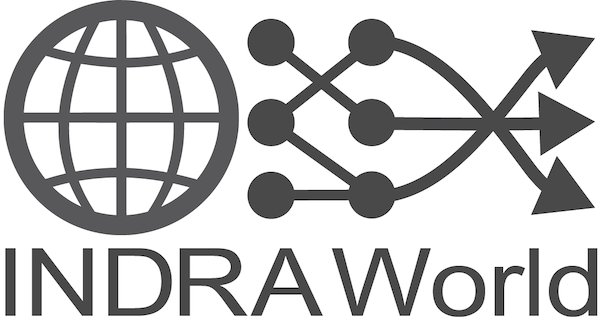INDRA World
 INDRA World is a knowledge assembly system that takes as input causal relations extracted by one or more reading systems from text. INDRA World first processes the output of reading systems into a standardized object model called INDRA Statements and then performs a number of assembly operations on Statements. An INDRA assembly pipeline can be configured flexibly to apply various filters (for quality, relevance, etc.), normalization, and processing steps.
INDRA World is a knowledge assembly system that takes as input causal relations extracted by one or more reading systems from text. INDRA World first processes the output of reading systems into a standardized object model called INDRA Statements and then performs a number of assembly operations on Statements. An INDRA assembly pipeline can be configured flexibly to apply various filters (for quality, relevance, etc.), normalization, and processing steps.
INDRA World builds on and is a generalization of INDRA, a knowledge and model assembly system originally developed for biology. INDRA World makes use of the general INDRA assembly logic to find relationships between Statements, including matching, contradiction, and refinement (i.e., one statement is a more general or more specific version of the other). These inter-Statement relations are reconstructed with respect to an ontology graph and INDRA World uses a scalable algorithm that can handle finding relations between tens of millions of Statements. Statements that match exactly are merged and their supporting evidences are combined. Stateements that are in a refinement relationship where one is a specification or a generalization of the other are organized into a refinement graph. Given the overall direct or indirect support for a Statement, INDRA World uses a probabilistic “belief” model to determine how likely it is that the Statement is correct (i.e., not a result of a reading error) and assigns a score between 0 and 1.
After the assembly process, INDRA Statements can be used directly programmatically or interactively through visual interfaces such as CauseMos. They are also the basis of qualitative analysis and serve as input to the DySE and Delphi systems which turn collections of assembled INDRA Statements into Boolean models and Dynamic Bayesian Networks, respectively.
Importantly, INDRA World implements a service architecture which allows it perform incremental assembly in a project-specific way. For example, an initial assembly produced by INDRA World might have incorporated reader output for 10k documents (which comes at a large initial reading and processing cost), and later 10 more documents need to be added to the same project. The INDRA World REST API can incorporate reader outputs for these new documents and produce an “assembly delta” which describes how the structure of Statements, their relationships, their supporting evidences, as well as Statement beliefx change as a result of the new relations extracted from the documents.
The INDRA World documentation is available here.